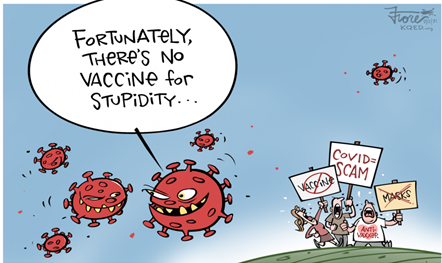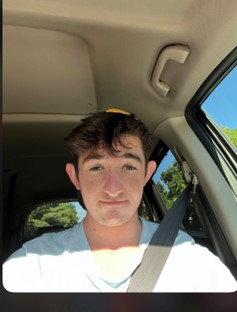Psychology of Anti-Vaxers

November 21, 2021
As we near the two-year mark of Covid-19, there is no end in sight. While almost 50% of the world has had at least one vaccine, there are many who refuse to acknowledge that the pandemic exists and even more who succumb to conspiracy theories about the vaccine itself. How can people deny a pandemic that killed over 4.5 million worldwide? And why is almost ⅓ of the US skeptical of the vaccine?
One of the reasons is confusion. Because COVID-19 is so prevalent in our everyday life, the news is plagued with daily updates, facts, and most importantly speculations. It is human nature to look for answers everywhere and when scientists present a conflicted front or sometimes don’t even have all the answers, distrust is to be expected. Frankly, it’s not unreasonable that many are hesitant of COVID-19 facts vs. fictions. With that being said, refusing vaccination is always going to be selfish because all scientists can agree that the vaccine prevents COVID-19. The facts are there. Fewer than 6% of COVID-19 cases are of vaccinated people. Also more than 99% of all covid deaths are unvaccinated people. This tells us that maybe there is a more deep rooted cause of distrust. Many link this to denial.
Denial is a defense mechanism used when you refuse to accept reality or facts. This sense of denial can be linked to all sorts of things. It can be a sentiment initiated from your family members and is also constantly exacerbated by social media. Although people have denied many plagues in the past, denial has never caused this many deaths. A term being coined for people who usually get vaccines and believe in science but deny the COVID-19 vaccine is called “cafeteria denial”, when one picks and chooses what to believe when it’s convenient. One who denies all vaccines is usually motivated by an implicit bias which most anti-vaxxers share. Implicit bias is when one has unconscious stereotypes that influence all related decisions. Regardless of the terms used, all psychologists believe that once somebody has a firm stance about something, it is unlikely that you can change their mind.
Instead of pushing your beliefs on others, lead psychologists understand that to sway others, you have to understand their viewpoint and show empathy. Without herd immunity, scientists are unsure when this pandemic will end so we must do everything we can to ensure everybody receives a vaccination.

